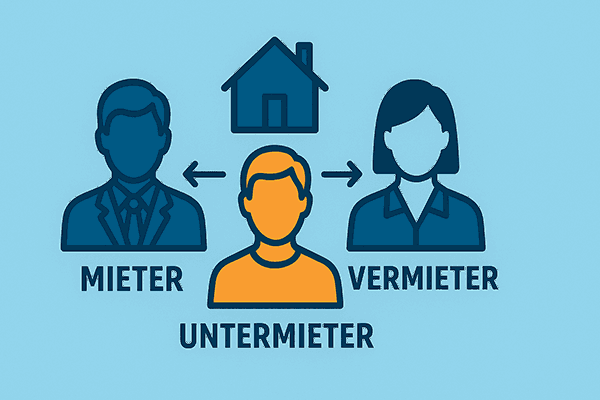Nice to have you here
at WG-Gesucht.de!
at WG-Gesucht.de!
Select Credit Report
Please choose a provider for your credit report.
 Rental relationships often involve main tenants, subtenants, and landlords – clear agreements help prevent disputes and misunderstandings.
Rental relationships often involve main tenants, subtenants, and landlords – clear agreements help prevent disputes and misunderstandings.
In tenancy law, different parties are involved: landlords, main tenants, and subtenants. To avoid misunderstandings and disputes, clear contracts are essential. Especially in shared apartments or subletting situations, written agreements should be precise to define all rights and obligations clearly.
Often, the landlord signs a contract with a main tenant, who then rents out individual rooms to subtenants. There is no direct contract between the landlord and the subtenants. The main tenant remains fully responsible for paying rent and covering damages to the property.
If a subtenant fails to pay, the main tenant must still pay the landlord. Under Section 540 (2) BGB, the main tenant is liable for damages caused by subtenants but may seek compensation from them. When the main rental contract is terminated, the right to sublet also ends – all residents must move out.
If each resident has their own rental contract, there are no legal ties between them. The landlord decides who moves in and concludes separate agreements with each tenant. Each tenant only pays their share of the rent and is liable solely for damages they cause.
This model gives landlords more control but limits the tenants’ influence on who joins or leaves the apartment.
When several people sign one joint rental contract, they are all main tenants with equal rights. They are jointly and severally liable, meaning the landlord can demand the full rent from one tenant. That tenant may then request reimbursement from the others.
If someone moves out, the WG can propose a replacement. The landlord may only object for valid reasons, such as lack of solvency. To prevent conflicts, the number of tenants and the replacement process should be clearly defined in the contract.
The main tenant is liable to the landlord, even for damages caused by subtenants, but can claim compensation from the person responsible.
No. The subtenant only has a contract with the main tenant. Once the main rental contract ends, the sublease also expires.
If several people share one contract, the landlord can claim the full rent from any one tenant. That tenant can then demand reimbursement from the others.